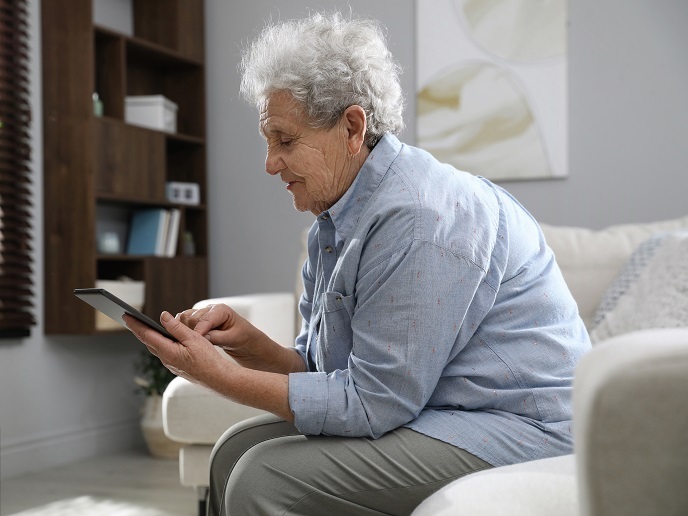Virtual rehabilitation coach at home
People with impairments caused by an acute episode such as stroke or chronic disease such as Parkinson’s or heart failure may experience limitations in everyday functioning and require rehabilitation. Such interventions are initiated during hospitalisation and usually must continue in the home environment. However, access of many European citizens to such rehabilitation services is often limited, threatening the quality of life of patients. Virtual coaches can be a key technology to ensure the continuity of care, enhance adherence to the care plan, and empower patients to self-manage their condition.
A personalised virtual coaching platform
The EU-funded vCare(opens in new window) project aimed to design and develop an adaptive virtual coaching ecosystem that takes into consideration the specific situation of each patient. “The idea was to generate an open coaching ecosystem to improve the recovery of an active and independent life at home,” explains the technical manager of the project Hannes Schlieter and head of the Research Group Digital Health at Dresden Technical University(opens in new window). The vCare architecture facilitates the integration of different sensor devices, data streams to monitor patient performance, and also external services depending on the specific case. The vCare coaching system is built on three service types, the coaching, the supporting, and the data services, encompassing a total of 21 clinical activities. The coaching services comprise the core activities of physical and cognitive rehabilitation games and provide e-learning content as well as avatar-based rehabilitation coaching. Motor games are run on a TV screen and make use of 3D and live body recognition. The supporting services offer weather information relevant to physical rehabilitation activities, the current agenda as well as an overview of the foreseen activities. The data from the coaching services is collected, processed and analysed. Moreover, face images and speech information are also collected as indicators of emotion.
Adaptation to personal rehabilitation needs
The vCare solution employs pre-configured rehabilitation activities set by clinicians and tested by patients depending on the pathology. Standardised clinical questionnaires are used to assess initially the quality of life, while feedback is asked for when certain proposed activities are not performed. The clinical pathways on which the coaching program as a whole was based and governed could be easily modified via a visual process modelling tool in case of need. One of the most important features of the vCare system is that it allows an autonomous adaptation during run time through real-time monitoring of heart rate and movement patterns as elements of physical activity and wellbeing. This information feeds into the system to ensure personalisation of the rehabilitation coaching care plan according to the progress achieved in the recovery of the impairments or disabilities. “The vCare project goes beyond the state-of-the-art technology, integrating and processing different data sources and patient preferences to personalise the rehabilitation coaching plan,” emphasises Schlieter.
Advantages and prospects
Implementation of the vCare virtual coach facilitates the continuity of care and the access to personalised cognitive (for the neurological cases), motor exercises (for all patient groups) and overall coaching advice. To underpin the post-project exploitation phase, the consortium has agreed to bring vCare solution to a higher level of technical maturity and to open the possibility of conducting large-scale clinical trials. The consortium is motivated to push the solution further, simplify it to improve usability and integrate it into existing platforms.







